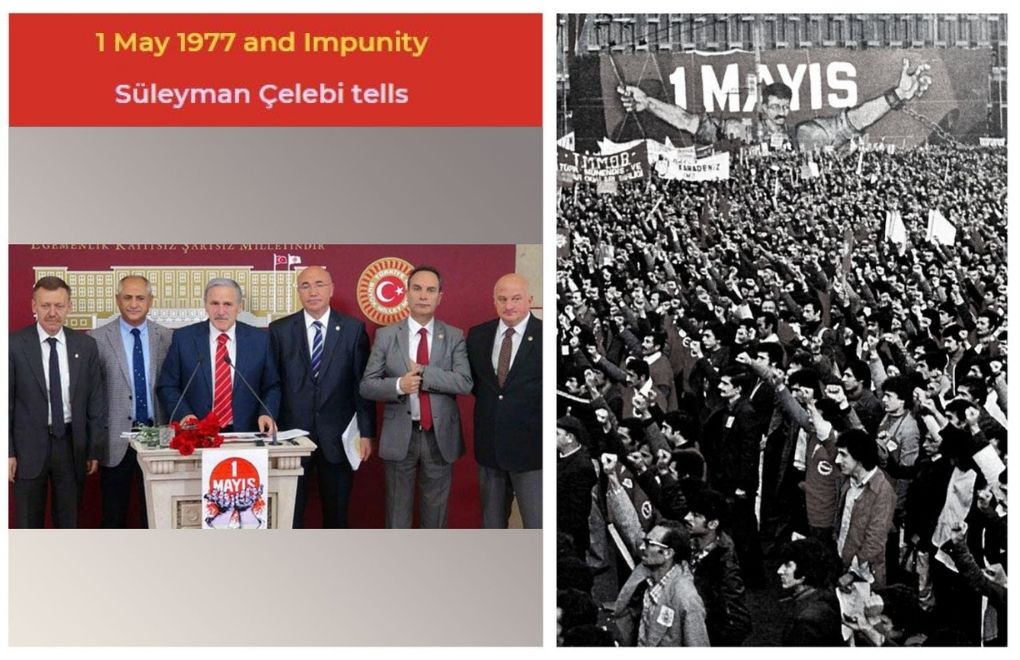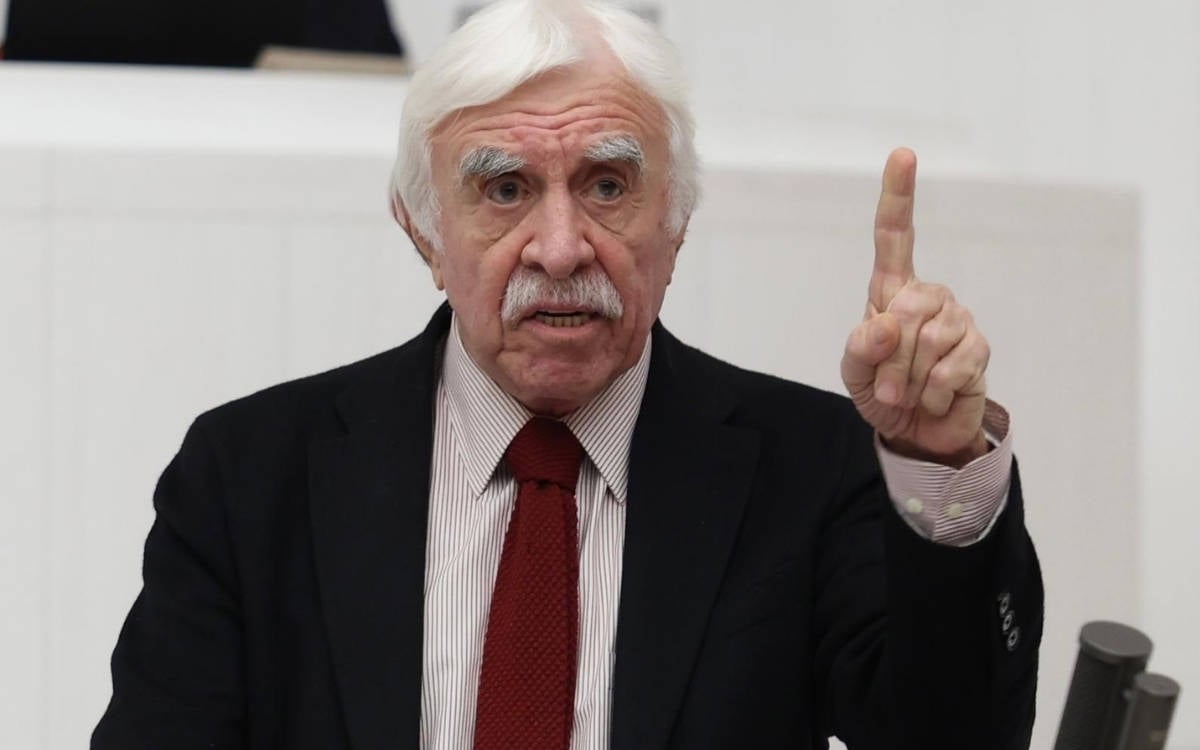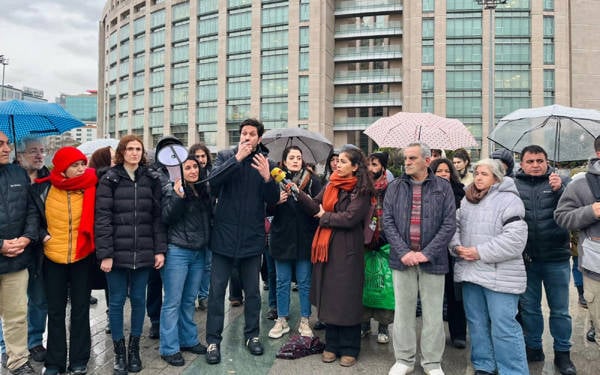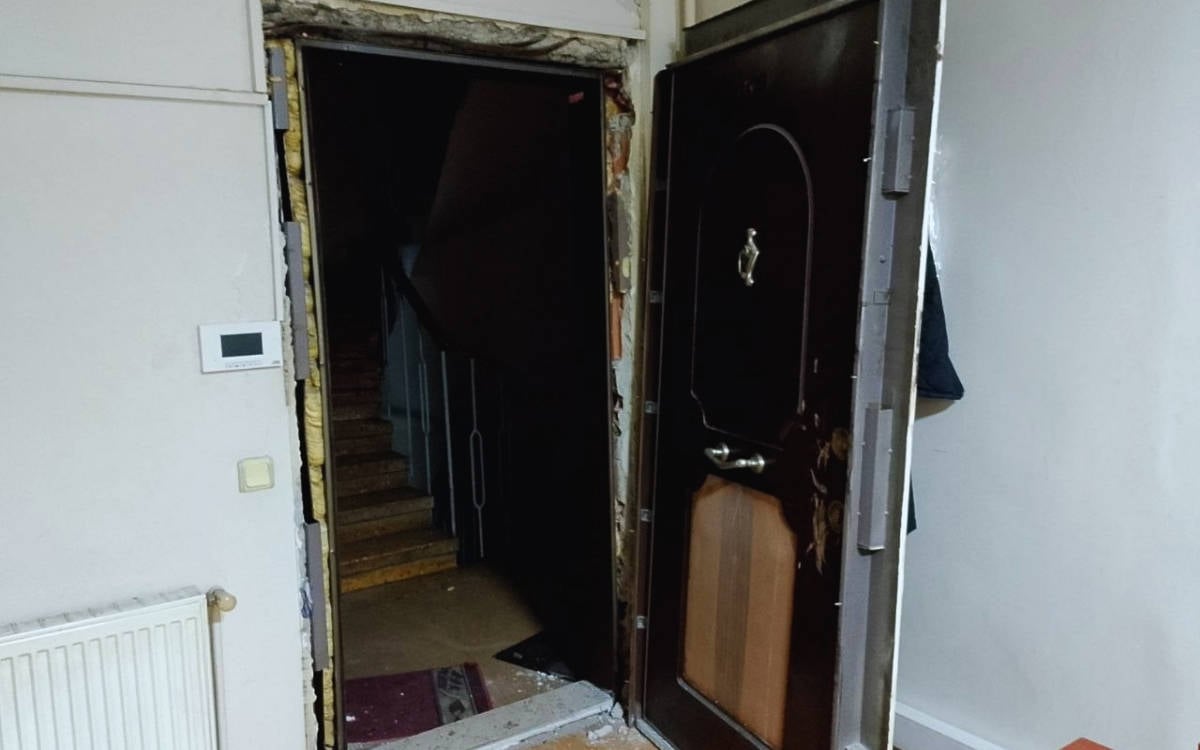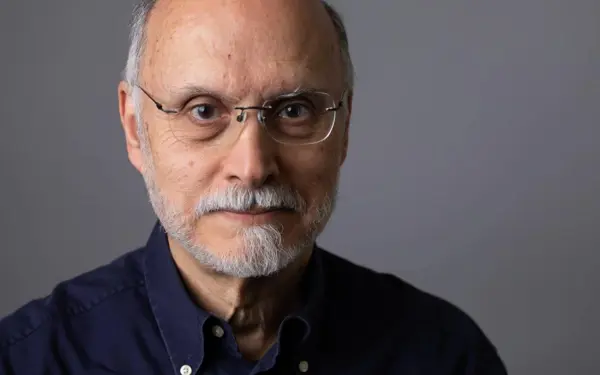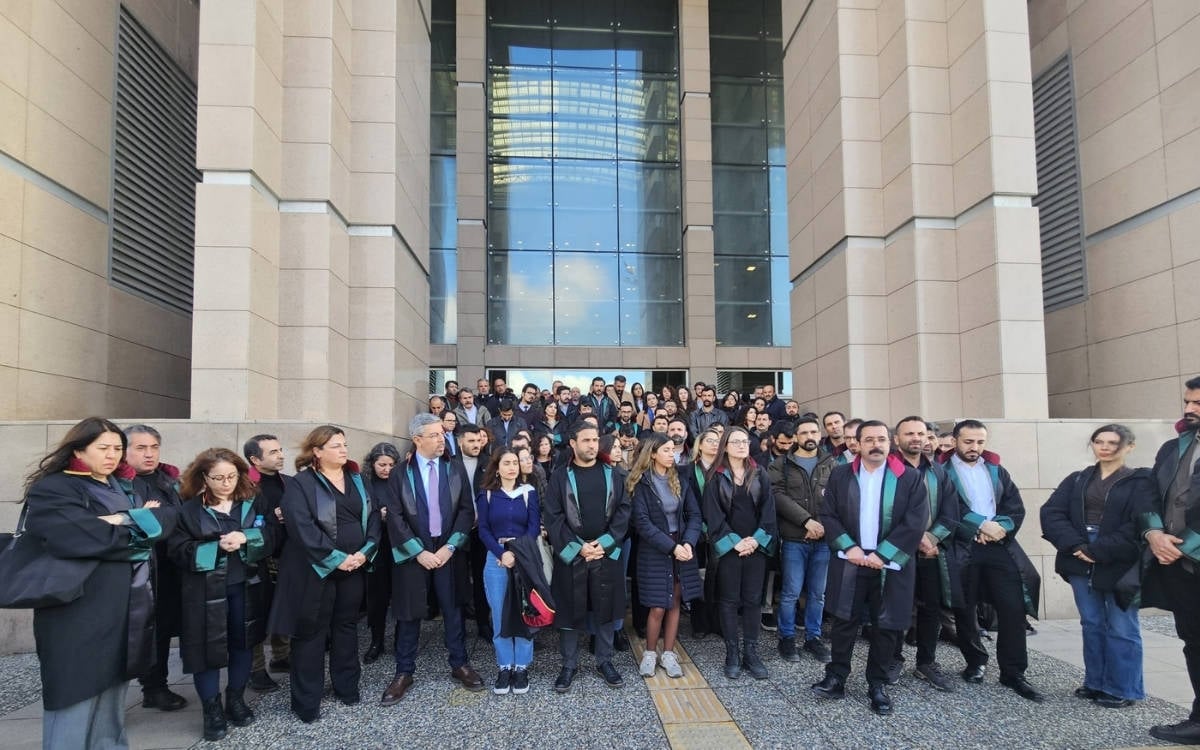Click to read the article in Turkish
Süleyman Çelebi is one of 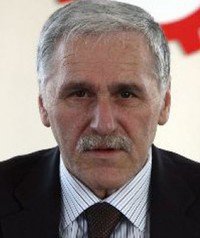 the witnesses of 1 May 1977, and a former Chair of the Confederation of Progressive Trade Unions of Turkey (DİSK). He served as the Republican People's Party (CHP) MP for Istanbul's third electoral district in the 24the term. He talks to bianet about what happened on 1 May 1977 in Taksim, which he calls "a planned and organised incident," and how the DİSK has followed up on the case.
the witnesses of 1 May 1977, and a former Chair of the Confederation of Progressive Trade Unions of Turkey (DİSK). He served as the Republican People's Party (CHP) MP for Istanbul's third electoral district in the 24the term. He talks to bianet about what happened on 1 May 1977 in Taksim, which he calls "a planned and organised incident," and how the DİSK has followed up on the case.
I leave the word to Süleyman Çelebi.
The First of May Square
"Should this be the First of May Square?" Kemal Türkler asked from the platform during his speech on 1 May 1977, and then I remember the sound of gunshots and sirens. Labourers yelled "Yes!" in a thundering voice, and in less than two minutes, the square had become a bloodbath. Hundreds of thousands of people started running in all directions.
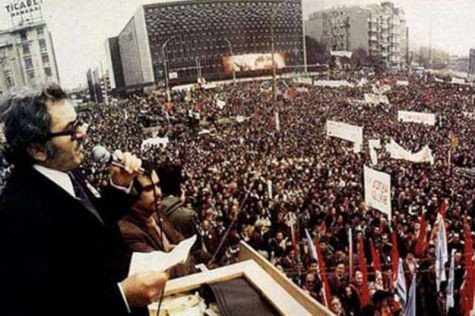
Afterwards, we found countless cartridge cases in the square, and we handed them over to our lawyers. I am one of many witnesses of this. And also of the trial process. The critical point here is this: If you look back at the trials for the case from the martial law period and the 1980 military coup, you can easily mistake us for defendants in the case. This, even though the murderers' identities were obvious. It was organised by state agents and provocateurs, but we who were there to celebrate on 1 May are the ones who were put on trial. Under an annotation referring to our "roles during the communist festival," all sorts of charges were made against us and we were held responsible for the massacre because we had invited workers and labourers to the demonstration. We went on putting all our efforts into each stage of the trial process. When I was president of DİSK I set myself a goal to do all I could to uncover the perpetrators of the massacre. Later I also fought for this in parliament.
119 witnesses
I was on the Parliamentary Research Commission for Coups and Military Memorandums. We included 1 May 1977 in the scope of our work because it was one of the important steps leading up to the coup. Our work covered the incidents at Fatsa, Maraş and Çorum too.
We fought for the witnesses to be heard, for the perpetrators to be found. We in the commission presented a list of 119 witnesses, including the witnesses of 1 May 1977. This was a list extending from the prosecutor leading the investigation to security forces on duty in Taksim that day. However, only 15 of them were given a hearing. And that was done just for the sake of it.
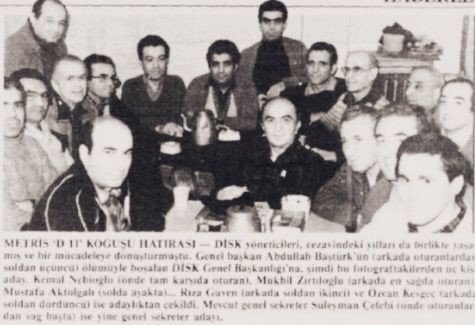
The one thing that is blatantly obvious at the present stage is this: The perpetrators of this massacre have got away with what they did. In turn, this fact reveals the sheer magnitude of the incident. I am talking about an incident that was planned and organised. The crime scene was filled with evidence, there were hundreds of eyewitnesses, but for some reason, even though it's been 43 years, those with blood on their hands have yet to be identified. I have expressed numerous times that this massacre was committed by the hand of an organisation within the state, as a counterinsurgency.
Proposals rejected
All our proposals to bring the perpetrators of 1 May 1977 to justice and for those responsible to be made known were also rejected in parliament. The same thing happened in the past; all of this can all be found in parliamentary records. All proposals were turned down or were covered up. But we must not forget that this is a crime against humanity. There is no statute of limitations for crimes against humanity. Therefore, we are all still responsible for uncovering the identities of the perpetrators of this massacre.
European Court of Human Rights judgment
One of the most important developments in the process was the judgment of the European Court of Human Rights. Referring to 1 May 1977, the court emphasised the importance of Taksim Square in the collective memory, the death of the labourers there, and their commemoration, saying that there is something special about this place. With this decision, for the first time, a city square appeared in the European Court of Human Rights system as a subject. It was a decision of great importance. Of course, no one in Turkey abided by the decision. It is the state's responsibility to abide by this decision and find the perpetrators. And it is our responsibility to follow up and make sure they carry out this process. (TY/APA/SD)
ECtHR Judgment: On 27 November 2012, the ECtHR announced its judgment in relation to the application to the court filed by DİSK and KESK on the grounds that, on 1 May 2008, their right to freedom of assembly had been violated. The court held the Turkish government responsible for the violation of article 11 of the European Human Rights Convention, "the right to freedom of assembly and freedom of association." The ECtHR judgment stated that: - The choice of venue [...] is part of the right to demonstrate; - [To] commemorate friends of the trade union and its members who had lost their lives during the demonstrations of 1 May 1977 clearly entered into the general mandate of the two trade unions concerned [DİSK and KESK]. - [A]lthough a demonstration in a public place may cause some disruption to ordinary life [...] it is important for the public authorities to show a certain degree of tolerance towards peaceful gatherings if [the right to] freedom of assembly [...] is not to be deprived of its substance |
About Süleyman ÇelebiLabourer, unionist, CHP MP for Istanbul for 24 cycles (28 June 2011-23 April 2015). Elected DİSK Executive Board Member in 1980, serving as head of the Department for Organisation and Recruitment. He was DİSK General Secretary from 1992 to 1994, and DİSK President from 2000 to 2011. He held office as board member of the European Trade Union Confederation, and the European Trade Union Federation for Textiles, Clothing and Leather, and was also member and co-president of the Turkey-EU Joint Consultative Committee. He started working in 1966 when he was 13, at the Dinarsu Factory. He was born in Ordu in 1953. |
About Tuğçe YılmazJournalist, editor, researcher. "1 May 1977 The Voices of Those Who Lost Their Loved Ones / 1 May 1977 and Impunity" she was engaged in this dossier as a researcher, reporter, editor and writer. Her articles, interviews and reports are published in outlets such as bianet, BirGün Book, K24, 5Harfliler, Gazete Karınca and 1+1 Forum. She graduated from Ege University, Faculty of Literature Department of Philosophy. She was born in Ankara in 1991. |
 |
| This text was created and maintained with the financial support of the European Union provided under Etkiniz EU Programme. Its contents are the sole responsibility of "IPS Communication Foundation" and do not necessarily reflect the views of the European Union. |
CLICK - 1 May 1977 e-book is online
The ones who lost their lives on 1 May '77The ones whose loved ones we could talk to: Ahmet Gözükara (34, teacher), Ali Sidal (18, worker), Bayram Çıtak (37, teacher), Bayram Eyi (50, construction worker), Diran Nigiz (34, worker), Ercüment Gürkut (27, university student), Hacer İpek Saman (24, university student), Hamdi Toka (35, Seyyar Satıcı), Hasan Yıldırım (31, Uzel worker), Hikmet Özkürkçü (39, teacher), Hüseyin Kırkın (26, worker), Jale Yeşilnil (17, high school student), Kadir Balcı (35, salesperson), Kıymet Kocamış (Kadriye Duman, 25, hemşire), Kahraman Alsancak (29, Uzel worker), Kenan Çatak (30, teacher), Mahmut Atilla Özbelen (26, worker-university student), Mustafa Elmas (33, teacher), Mehmet Ali Genç (60, guard), Mürtezim Oltulu (42, worker), Nazan Ünaldı (19, university student), Nazmi Arı (26, police officer), Niyazi Darı (24, worker-university student), Ömer Narman (31, teacher), Rasim Elmas (41, cinema laborer), Sibel Açıkalın (18, university student), Ziya Baki (29, Uzel worker), The ones whose loved ones we did/could not talk to: Aleksandros Konteas (57, worker), Bayram Sürücü (worker), Garabet Akyan (54, worker), Hatice Altun (21), Leyla Altıparmak (19, hemşire), Meral Cebren Özkol (43, nurse), Mustafa Ertan (student), Ramazan Sarı (11, primary school student) The ones only the names of whom are known: Ali Yeşilgül, Mehmet Ali Kol, Özcan Gürkan, Tevfik Beysoy, Yücel Elbistanlı The one whose name is unknown: A 35-year-old man |
The voices of those who lost their loved ones: 1 May '77 and impunity
Political panorama of Turkey-1977
Film industry worker Rasim Elmas, 41, died in Taksim
Construction Worker Bayram Eyi, 50, died in Taksim
Teacher Bayram Çıtak, 37, died in Taksim
High School Student Jale Yeşilnil, 17, died in Taksim
Teacher Kenan Çatak, 31, died in Taksim
Teacher Ahmet Gözükara, 33, died in Taksim
Teacher Hikmet Özkürkçü, 39, died in Taksim
Student-laborer Niyazi Darı, 24, died in Taksim
University student Nazan Ünaldı, 19, died in Taksim
Teacher Ömer Narman, 31, died in Taksim
Laborer Ali Sidal, 18, died in Taksim
Counterperson Kadir Balcı, 35, died in Taksim
Student Hacer İpek Saman, 24, died in Taksim
Factory Worker Kahraman Alsancak, 29, died in Taksim
Laborer Hüseyin Kırkın, 23, died in Taksim
Student Ercüment Gürkut, 26, died in Taksim
Public order police officer Nazmi Arı, 26, died in Taksim
Laborer Mahmut Atilla Özbelen, 26, died in Taksim
Factory worker Hasan Yıldırım, 31, died in Taksim
Itinerant salesperson Hamdi Toka, 35, died in Taksim
Security Guard Mehmet Ali Genç, 60, died in Taksim
Factory Worker Ziya Baki, 30, Died in Taksim
Laborer Mürtezim Oltulu, 42, Died in Taksim
Teacher Mustafa Elmas, 33, Died in Taksim
Student Sibel Açıkalın, 18, died in Taksim
Laborer Diran Nigiz, 34, died in Taksim
1 May 1977 & Impunity
'The state is implicated in this crime, perpetrators must be put on trial'
'If you can't find the killers, you can't remove the stain'
'The perpetrators of the 1 May 1977 massacre got away with it'
Remembrance as a matter of dignity and the fight against impunity
Who is hiding the truth and why?





